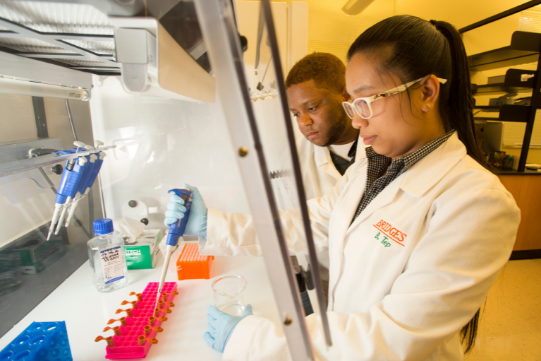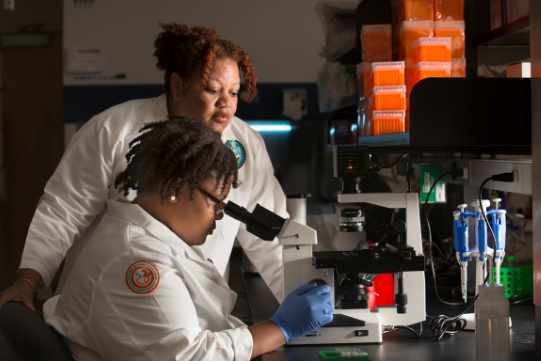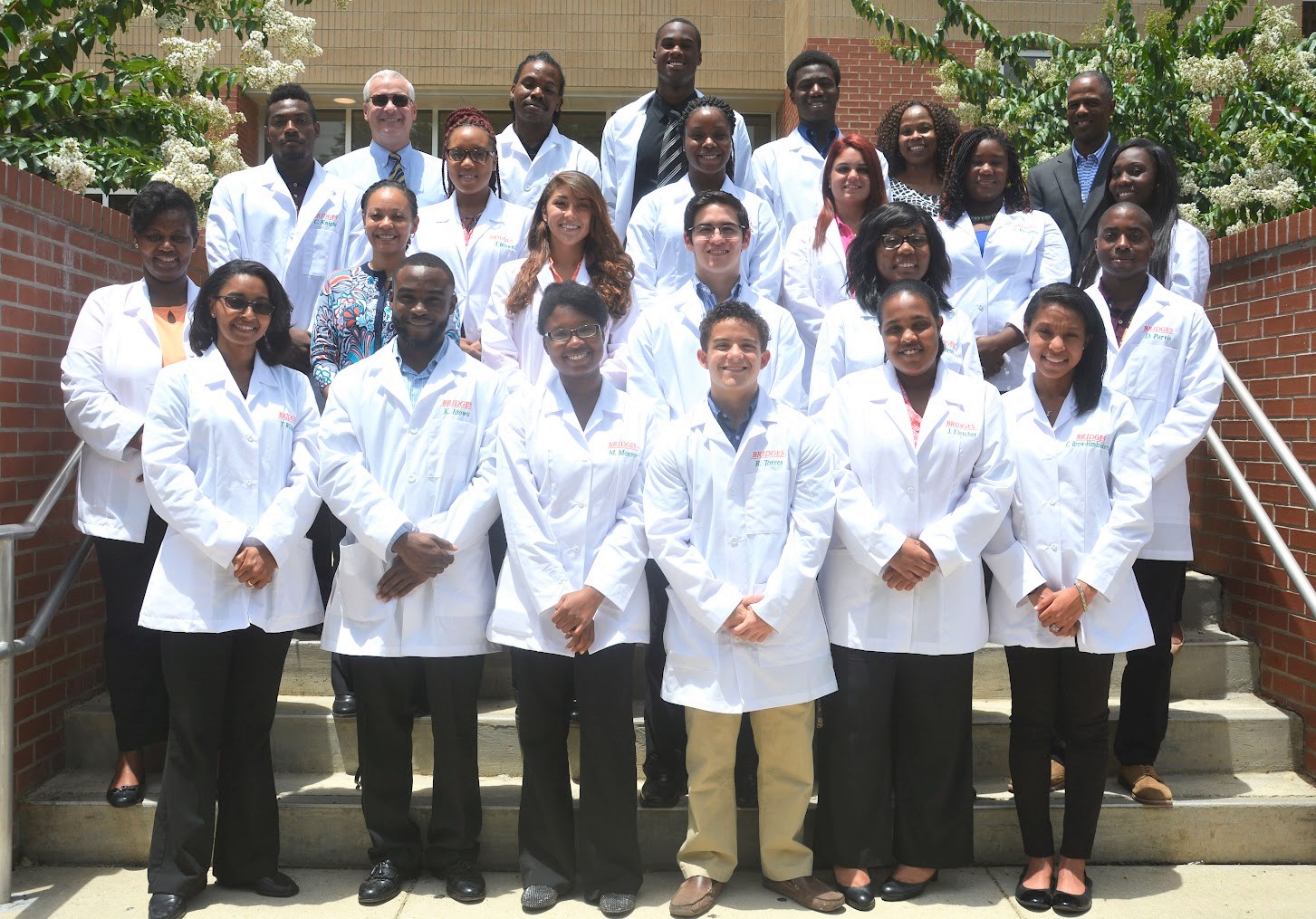Pharmaceutical Sciences
The Division of Pharmaceutical Sciences offers comprehensive coursework and research programs with an undergraduate degree that leads to a Bachelor of Science in Pharmaceutical Sciences. The division also offers graduate degrees leading to the Master of Science and Doctor of Philosophy degrees in Pharmaceutical Sciences. Concentrations include health outcomes research and pharmacoeconomic, pharmacology/toxicology, medicinal chemistry, pharmaceutics, and environmental toxicology.
PHARMACEUTICAL SCIENCES DEGREE PROGRAMS
The BSPS is a four-year undergraduate degree program for learners seeking technical positions in industrial, academic, or other research environments.
The pharmaceutical sciences graduate course is designed to give learners a strong background in modern theoretical principles in their specialization and application through research.
AREAS OF CONCENTRATION IN PHARMACEUTICAL SCIENCES
Medicinal Chemistry offers learners the opportunity to study and gain expertise in drug design and synthesis of new drug molecules, modification of existing drug molecules, development of methodologies for analyzing drug molecules and metabolites, and methods for predicting drug action based upon chemical structure. Scientists can also investigate drug molecules' mechanism of action and routes of metabolism.
Pharmaceutics specializes in pharmaceutical science, designing, fabricating, and evaluating drug delivery systems. Research in pharmaceutics aims to optimize drug activity by ensuring maximum therapeutic effect, safety, and convenience.
Pharmacology comprises the study of the interaction of drugs with various biological and physiological systems. Scientists in this area investigate the mechanism of drugs that produce therapeutic actions and their side effects. Such studies often improve the use of existing drugs, enhanced approaches to control side effects, and the discovery of new mechanisms of action or biochemical pathologies of certain diseases.
Toxicology is a subdivision of pharmacology that focuses on the various toxic effects of drugs and household, industrial, and environmental chemicals upon the different physiological systems of the body. Scientists specialize in analytical methodology, risk assessment, and toxicological testing techniques.
Economic, Social, and Administrative Pharmacy (ESAP) allows learners to design and conduct research on pharmacy practice and medication use. The program is based on training in research methodology, knowledge of pharmacoeconomics and health outcomes, and understanding of health services to improve the quality of pharmaceutical and medical services.
OTHER PROGRAMS
The National Institute of General Medical Sciences (NIGMS) of the National Institutes of Health (NIH) Bridges to the Baccalaureate (B2B) Research Training Program at Florida A&M University (FAMU), in partnership with Tallahassee Community College (TCC), is an initiative to attract underrepresented learners to pursue careers in the biomedical sciences at FAMU.






